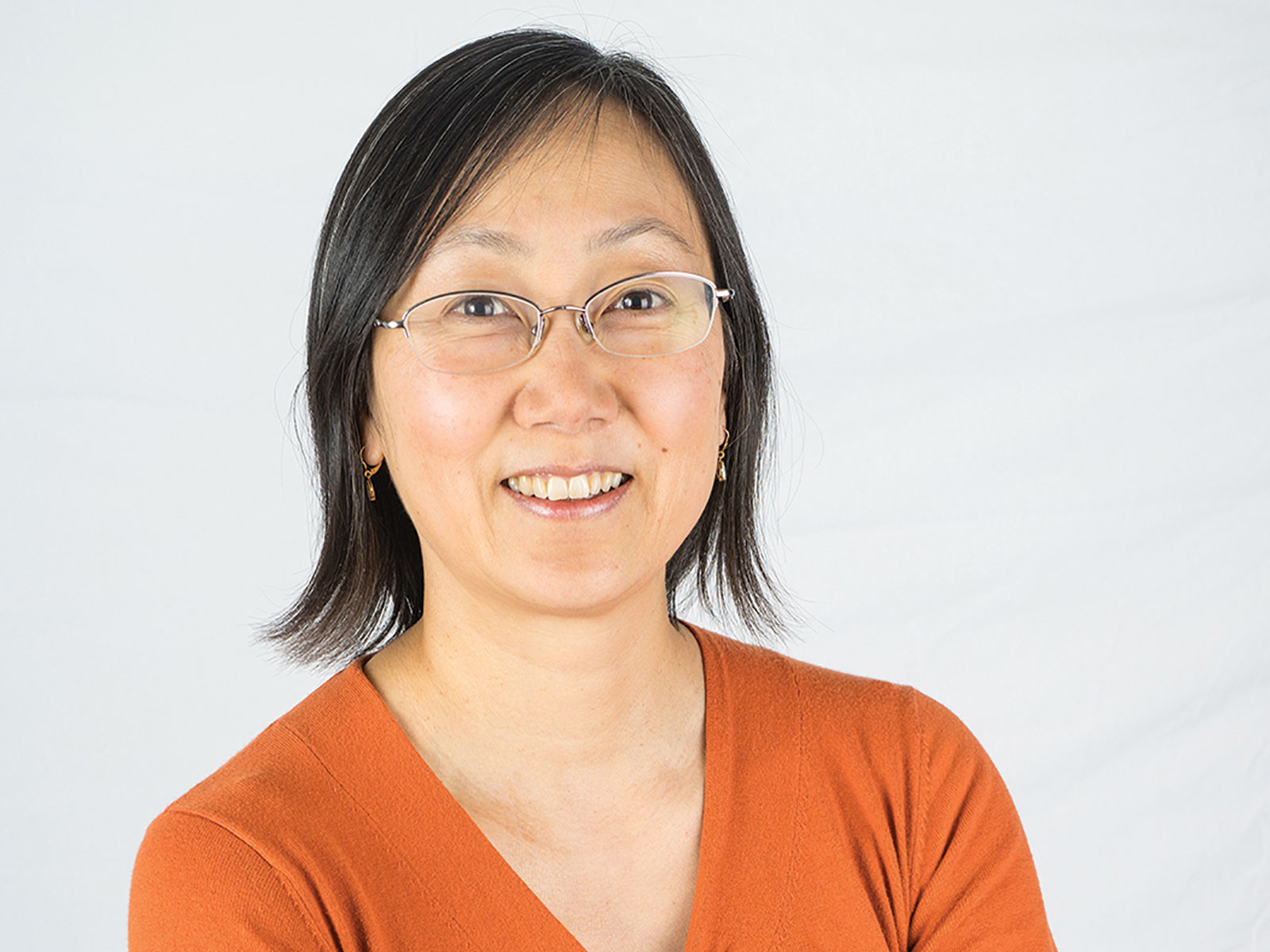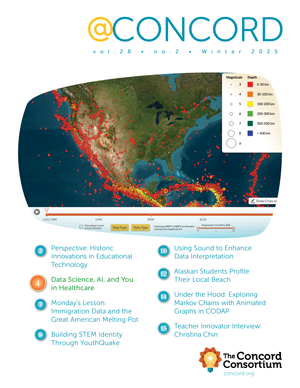News at Concord Consortium
Sherry Hsi, New Executive Vice President

As a graduate student at UC Berkeley in 1996, Sherry Hsi accompanied Professor Marcia Linn to a learning technology center planning meeting at SRI International where she met Robert (Bob) Tinker, creator of the same probeware Marcia was using in her Apple computer-enabled research classroom and founder of the then two-year-old Concord Consortium. This would prove to be a decisive moment in Sherry’s career path.
At the time, probeware was controversial. Many teachers believed that plotting points by hand and labeling graphs on paper was necessary to do meaningful science, rather than letting the computer plot points so students could focus on understanding data trends. Bob Tinker was ahead of his time, and Sherry was hooked by his enthusiasm and innovative ideas. She joined the Concord Consortium in 1997 as a virtual postdoc, doing research on mobile learning and teaching with the Virtual High School.
She went on to build collaborative knowledge communities at several nonprofits, develop ways to support deeper engagement in science with technology and new media at the Exploratorium, and create open-access STEAM digital libraries and high-low tech materials for engineering education at the Lawrence Hall of Science. In 2016, she returned to the Concord Consortium to lead three Innovation Lab projects: InSPECT, Learning Everywhere, and Paper Mechatronics. Sherry was recently appointed Executive Vice President of the Concord Consortium. She says, “I am excited about accelerating our research and impact on technology-enabled inquiry learning and teaching. Our goal is to ensure teachers are empowered to use technology effectively to support content-rich STEM inquiry, foster collaborative problem solving, and engage in critical sense-making.”
Inventing New Tools for Tomorrow’s Students
Bob Tinker was enlightened by a vision of the future, blazing the trail to a transformative era in education. At the Concord Consortium, we continue to experiment with novel ideas, using new technologies to support classroom inquiry in STEM, and research the effects on learning. We draw from the future as we invent new tools for tomorrow’s learners.
This spring, we are convening a group of thought leaders in a two-day summit to envision learning of the future, and then map the steps needed for this vision to become reality. Led by the Concord Consortium and co-hosted by Dynamicland with generous support from the Gordon and Betty Moore Foundation, Designing 2030 represents a diverse, future-looking community, poised to take full advantage of current convergences in educational technology.
We will consider the growing maturity of open technology resources for STEM learning, notable advances in learning sciences research, new possibilities arising from the streams of data generated as learners interact with educational technology, and the growing potential of learning analytics and data mining to shed new light on teaching and learning. We’ll honor Bob’s legacy by dreaming big and exploring what learning and teaching should look like in 2030. How can technology transform the way we teach and learn science and broaden participation by more learners?
Robert F. Tinker Scholarship and Fellows Program
At the AERA 2018 joint SIG business meeting of Learning Sciences and Advanced Technologies for Learning, we were delighted to announce the Robert F. Tinker Scholarship for emerging scholars. The scholarship will be awarded annually to a graduate student or postdoc who is a member of the Learning Sciences and/or Advanced Technologies for Learning SIG and has an accepted presentation at AERA with research in one of the following themes: tools for inquiry, learning and collaboration, data explorations, sustainability and the environment, tinkering with models, playful experimentation, online learning, or learning everywhere. We are also creating a Robert F. Tinker Fellows Program at the Concord Consortium. Look for additional details on our website soon.
